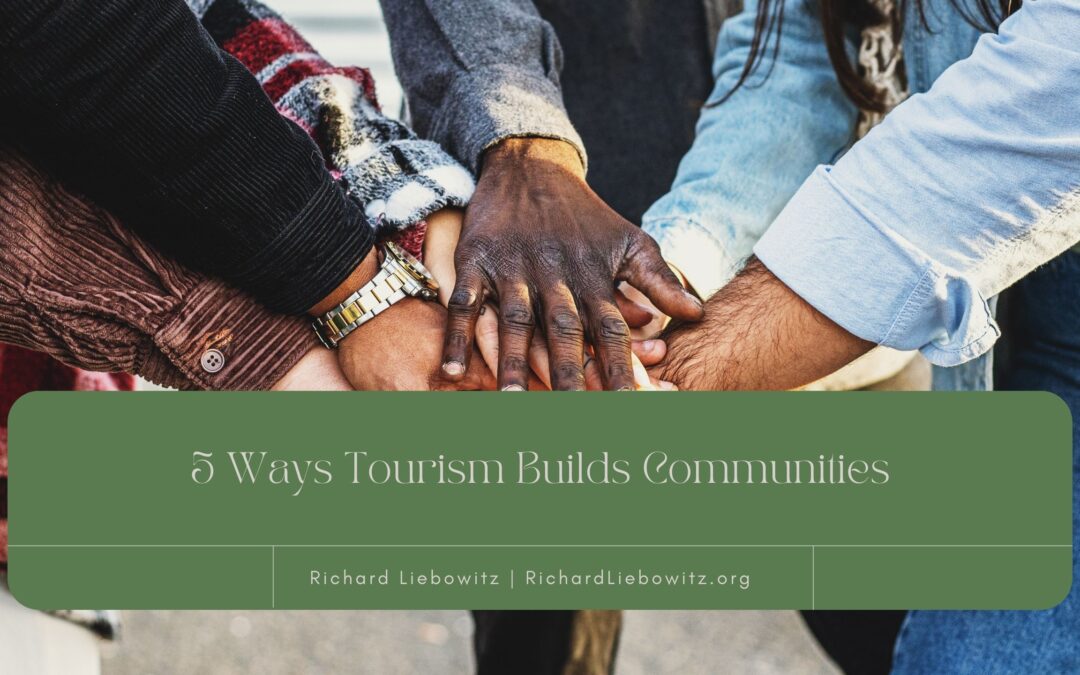Tourism often gets a reputation for being a one-way street – visitors come, spend money, and leave. But the truth is tourism can be a powerful force for good, weaving itself into the fabric of the communities it touches. Here are five ways tourism strengthens the places we call home:
- Economic Engine: Tourism is a significant job creator, especially in smaller towns and rural areas. Hotels, restaurants, shops, and tour operators rely on visitors to keep their doors open. This translates to more employment opportunities for locals, injecting cash into the community and boosting the economy. Think about charming bed and breakfasts run by families or local artisans selling their crafts to visitors – these are the faces of tourism’s economic impact.
- Preserving Traditions: Tourism can be a powerful tool for keeping local traditions alive. Visitors are often drawn to a place because of its unique culture, history, or cuisine. This increased interest can spark a renewed appreciation for these traditions among locals, encouraging them to be passed down to future generations. Imagine a town famous for its annual folk festival – tourism helps ensure this cultural celebration thrives.
- Community Pride: When outsiders appreciate a place’s beauty and charm, it can boost the residents’ morale. Locals take pride in sharing their particular corner of the world, and tourism can be a way to showcase its hidden gems. Think about a small coastal town known for its breathtaking sunsets—tourism can make residents appreciate the natural beauty they see daily.
- Investing in Infrastructure: Tourism revenue can be a crucial funding source for local infrastructure projects. These can include improvements to roads, parks, and public transportation, all of which benefit not just tourists but also residents. Imagine a national park that attracts visitors from all over—tourism dollars might be used to upgrade hiking trails and visitor centers, making the park even more enjoyable for locals, too.
- Understanding and Tolerance: Tourism fosters cultural exchange and understanding. As visitors from different backgrounds come to explore, they interact with locals and learn about their way of life. This can break down stereotypes and create a more tolerant and welcoming atmosphere in the community. Imagine a bustling city known for its diverse ethnic neighborhoods – tourism can encourage locals to try new cuisines and celebrate different cultural festivals.
Of course, tourism has its challenges. It’s essential to find a balance that benefits both visitors and residents. But when done thoughtfully, tourism can be a powerful force for positive change. It can create jobs, preserve traditions, boost community pride, improve infrastructure, and promote understanding. So next time you travel, remember that you’re not just experiencing a new place – you’re also contributing to the well-being of the community that welcomes you.

